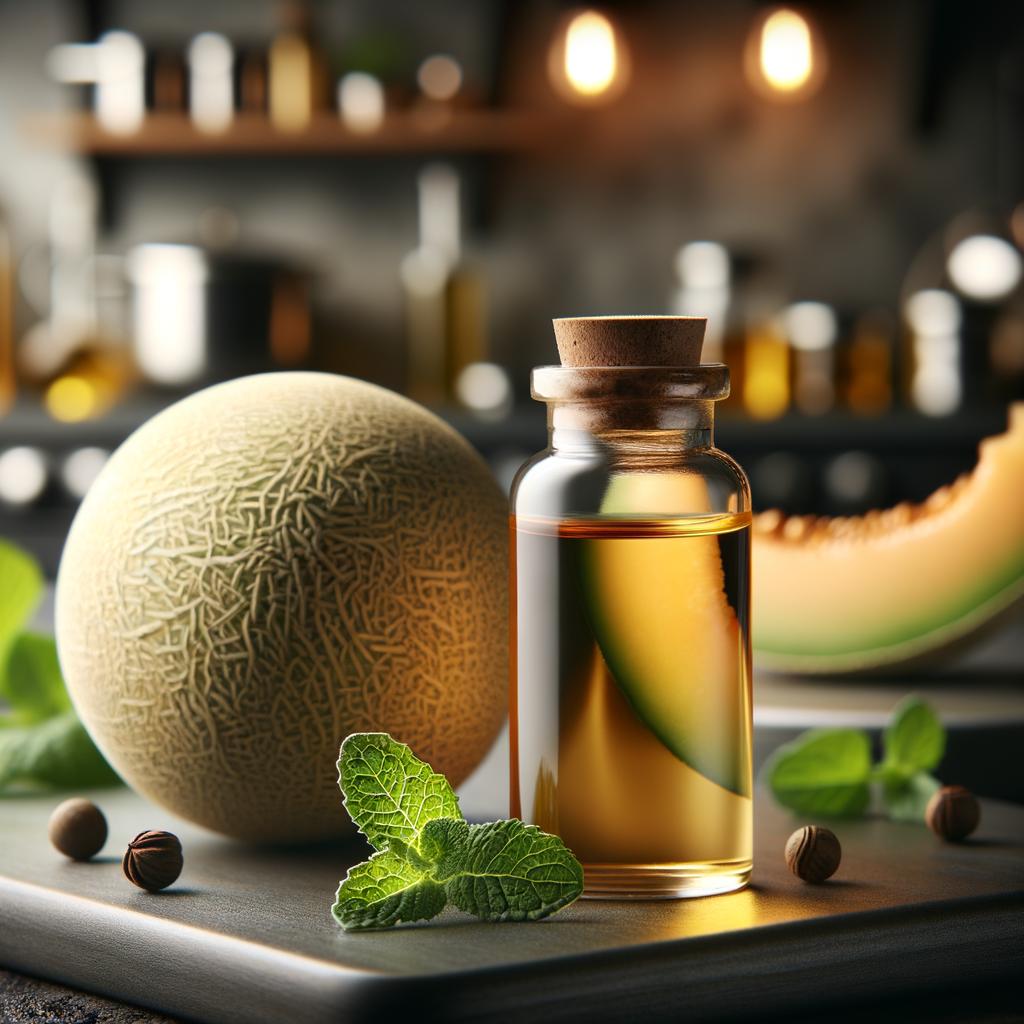Melon Flavoring

Description Melon flavoring is an enchanting ingredient that carries the sweet, refreshing essence of summer melons. It is a clear, slightly syrupy liquid that is typically colorless or has a slight tinge of yellow. The flavor profile of melon flavoring is predominantly sweet, with a hint of tartness and a refreshing, fruity undertone. Its unique characteristics lie in its ability to encapsulate the essence of various types of melons, such as cantaloupes, honeydews, or watermelons, into a single drop, lending a delightful burst of flavor to any dish or drink it graces.
Primary Uses Melon flavoring is a versatile ingredient that can be used in a multitude of culinary applications. It's commonly used to enhance the flavor of desserts like ice creams, sorbets, and pastries, adding a refreshing twist to these sweet treats. It also finds its way into beverages, where it lends a fruity note to cocktails, smoothies, and flavored waters. In Asian cuisines, particularly in Japan, melon flavoring is a key component in candies and soft drinks. Beyond its culinary uses, melon flavoring is also used in the making of perfumes and cosmetics, its sweet, fruity scent adding a touch of summer to these products.
History The history of melon flavoring is intertwined with the history of melons themselves. Melons have been cultivated for thousands of years, with their seeds found in archaeological sites dating back to 2400 BC. The idea of encapsulating their flavor into a concentrated form, however, is relatively modern, coinciding with advancements in food science and technology. Melon flavoring gained popularity during the 20th century, as the demand for fruit-flavored candies, drinks, and desserts grew. There's an interesting Japanese folklore associated with melons. It's said that a rabbit assisted a farmer in growing the sweetest melons, and as a reward, the farmer made candies flavored with his melons for the rabbit, which might be the romantic origin of melon-flavored candies.
Nutritional Information While melon flavoring doesn't possess the same nutritional profile as actual melons, it does carry a small amount of the fruit's essence. It's low in calories and free from fats, proteins, and carbohydrates. However, it's important to note that some commercially produced melon flavorings may contain added sugars and artificial ingredients. When compared to other fruit flavorings, melon flavoring stands out for its refreshing and distinct flavor profile. As with all ingredients, it's best to use melon flavoring in moderation, adding a touch of its delightful sweetness to your dishes and drinks.

